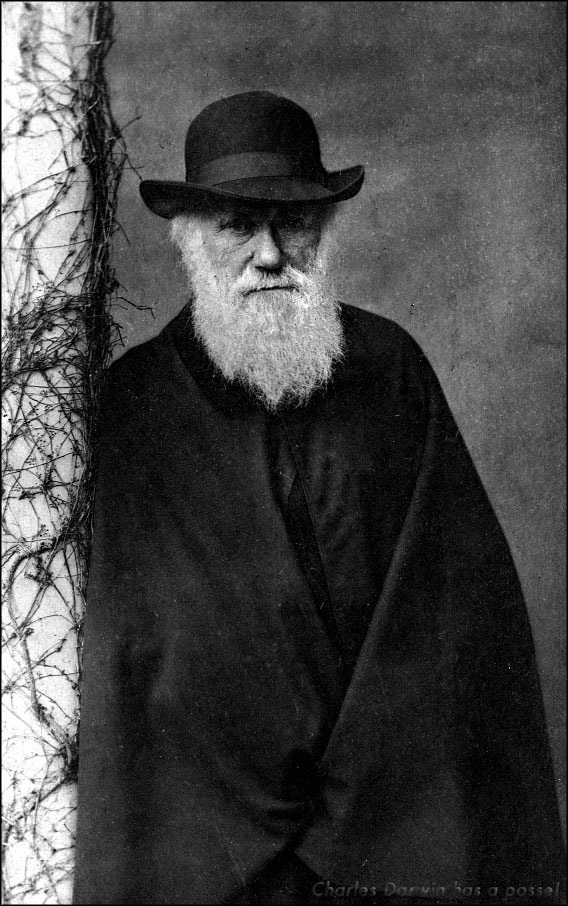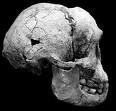Nov
30
2009
I have stated before that I think one of the most important battle lines for skeptics and science promoters relates to issues of science in medicine. The science-based standard of care is being systemically attacked on every conceivable front – not just public opinion, but legislative, academic, and commercial. Promoters of dubious health treatments and products, what used to comfortably be called “health fraud” have successfully rebranded their products as “natural” and “alternative.”
But at its heart, the complementary and alternative medicine (CAM) movement is about eroding science as an obstacle to selling bogus treatments.
I created the Science-Based Medicine site in order to confront the public opinion and academic angles of this important issue. But educating the public and exposing the flawed arguments and weak evidence of CAM does not directly address what is perhaps the most important front – legislation. Ultimately, it is laws and regulations that establish or weaken the science-based standard of care.
That is why Larry Sarner and Linda Rosa have brought together an international group of 42 physicians (and growing) to form the Institute for Science in Medicine. From the ISM website:
Continue Reading »
Nov
27
2009
On Wednesday I wrote about Rom Houben, the 46 year old man who spent the last 23 years in an apparent vegetative state (PVS) following a motor vehicle accident. Recently it came to light the Houben is not in a PVS – he has some degree of consciousness and his PET scan shows near normal brain metabolic activity. It is likely, therefore, that Mr. Houben has some impairment of consciousness, but he is not vegetative. In fact, according to his neurologist, Dr. Steven Laureys, he has minimal but definite signs of consciousness clinically, but combined with the PET scanning data he likely has significant consciousness (more than what would be called a minimally conscious state – see my earlier post for more details).
If that were all there was to this case, this would be a very interesting, if unusual case, that highlights the complexity of assessing consciousness in patients who are not able to communicate directly. This is Dr. Laureys’ area of research, and he is desperate to keep the media’s treatment of the Houben case fixed on this point.
However, this case has another angle that simply cannot be ignored, despite Dr. Laureys’ wishes. The public video of Mr. Houben’s communication shows a “facilitator” moving his paralyzed hand around a computer screen with uncanny speed and accuracy. Through this method Mr. Houben “speaks” to the world about his condition, and is even, we are told, writing a book.
Continue Reading »
Nov
27
2009
Like my science-blogging colleagues, I get e-mail. I always appreciate it when readers (or listeners, in the case of the SGU) take the time to write. Sometimes the e-mails are questions from someone who disagrees with my position on a hot issue. I especially like these e-mails – they are good blog fodder, and I think the format of answering questions is more compelling and interesting than making a didactic argument.
Below is an example of the kind of question I most like to get – from someone who disagrees with me, but still manages to ask polite and cogent questions. This stands in stark contract to most hostile e-mail I get, which are just strings of ad hominems, straw men, and other logical fallacies. I get the impression (and some of my e-mailers have later even admitted this) that the e-mails were not meant as an opening to serious discussion, but as a venting rant into the ether of the internet.
Harold asks some very important questions about the alleged autism-vaccine link and research priorities, and I am happy for the opportunity to clarify my position. His e-mail begins below the fold:
Continue Reading »
Nov
26
2009
 Just a short post today, as it is Thanksgiving for those of us in the US, and my day will be spent with family and way too much food.
Just a short post today, as it is Thanksgiving for those of us in the US, and my day will be spent with family and way too much food.
Many of you may remember the idiotic duo of mindless creationism (IDMC) – Ray Comfort and Kirk Cameron. One of Cameron’s shining intellectual moments was when he presented his impression of a transitional species – the crocoduck. This is a favorite strategy of creationists – grossly misinterpret evolutionary theory, and then argue that because you are ignorant of how evolution is supposed to work, it must be false.
In this case Cameron presents and example (the crocoduck) of what many creationists think of as a transitional species, an impossible hybrid monster. They must think that evolutionists believe that in order for a duck to evolve, first a crocodile evolves a duck body, while retaining its crocodile head, and then the head eventually evolves into a duck head. And since we have never found a crocoduck – evolution must be false.
Continue Reading »
Nov
25
2009
I don’t know. The mainstream media is doing a wonderful job sensationalizing this case, presenting it without skepticism. Some outlets are doing a good job of discussing the relevant issues – but they don’t have the information to have a meaningful discussion of this particular case. Details are tantalizing but thin.
The case is that of Rom Houben. The story was broken, as far as I can tell, by the Mail Online – yes, that is a huge red flag. It does not make the story wrong, it just doesn’t instill in me confidence in the reporting.
Mr. Houben was in a terrible motor vehicle accident 23 years ago and has been paralyzed ever since. His diagnosis has been PVS – persistent vegetative state. However, recently, we are told, his mother insisted on a neurological re-evaluation. This is actually quite reasonable, generally speaking (again, without knowing specific details of this case).
Continue Reading »
Nov
24
2009
 It may metaphorically be said that natural selection is daily and hourly scrutinising, throughout the world, the slightest variations; rejecting those that are bad, preserving and adding up all that are good; silently and insensibly working, whenever and wherever opportunity offers, at the improvement of each organic being in relation to its organic and inorganic conditions of life. We see nothing of these slow changes in progress, until the hand of time has marked the lapse of ages… — Charles Darwin, The Origin of Species (1859)
It may metaphorically be said that natural selection is daily and hourly scrutinising, throughout the world, the slightest variations; rejecting those that are bad, preserving and adding up all that are good; silently and insensibly working, whenever and wherever opportunity offers, at the improvement of each organic being in relation to its organic and inorganic conditions of life. We see nothing of these slow changes in progress, until the hand of time has marked the lapse of ages… — Charles Darwin, The Origin of Species (1859)
One hundred and fifty years ago Charles Darwin published On The Origin of Species by Means of Natural Selection, or The Preservation of Favoured Races in the Struggle for Life. It was an instant success – being a highly anticipated work, and definitely has lived up to the hype.
Continue Reading »
Nov
23
2009
I and other science bloggers spend a lot of time and virtual ink doing damage control on bad science reporting in the media. It’s hard not to get a little jaded after wading through one terrible science article after another. I discuss this problem and one stunning example of promoting pseudoscience passing for journalism today on SkepticBlog.
But occasionally I do make a point of celebrating good science journalism when I see it – and not just a solid piece discussing a new science news item, but a reporter tackling a controversial topic and getting it right. Most of the time mainstream journalism of fake scientific controversies or fringe ideas falls for the “false balance” fallacy – presenting fake science and real science side by side, as if they were equivalent, or just a matter of opinion. Or, even worse, we get token skepticism, or no skepticism at all.
Last week the Chicago Tribune printed a long piece on biological treatments for autism by Trine Tsouderos and Patricia Callahan, and an excellent piece it was. They clearly understand what the real story is – a subculture of fringe doctors and others who are essentially doing unethical experiments and children with autism. They are exploiting desperate parents (who then sometimes contribute to the exploitation of the next desperate parents) who are seeking any possible help for their children.
Continue Reading »
Nov
19
2009
 I have been following the story of Homo floresiensis, dubbed the Hobbit by the media because of its short stature. In 2003 scientists discovered a fairly complete skeleton (skull, jaw, pelvis, arms, legs, hands and feet) on the island of Flores in Indonesia. The skeleton is 18,000 years old and is probably an adult female about 3 feet 6 inches in height and with a brain capacity of 417 cc.
I have been following the story of Homo floresiensis, dubbed the Hobbit by the media because of its short stature. In 2003 scientists discovered a fairly complete skeleton (skull, jaw, pelvis, arms, legs, hands and feet) on the island of Flores in Indonesia. The skeleton is 18,000 years old and is probably an adult female about 3 feet 6 inches in height and with a brain capacity of 417 cc.
There are other specimens of H. floresiensis, but none with cranial parts. The type specimen described above, designated LB1, is the only good specimen.
There has been a controversy surrounding how to interpret this fossil. In one camp are those who claim it is a modern human with dwarfism and microcephaly – a developmental disorder that results in a small head and brain. They cite as evidence morphological anomalies in the face and teeth.
Continue Reading »
Nov
18
2009
The following was cross-posted at ScienceBasedMedicine.
There are two general approaches to subverting science-based medicine (SBM): anti-science and pseudoscience. Anti-scientific approaches are any that seek to undermine science as the determinant of the standard of care, often overtly advocating for spiritual or subjectively-based standards. Some attack the validity of science itself, usually with post-modernist philosophy.
Pseudoscientific proponents, on the other hand, praise science, they just do it wrong. In reality there is a continuum along a spectrum from complete pseudoscience to pristine science, and no clear demarcation in the middle. Individual studies vary along this spectrum as well – there are different kinds of evidence, each with its own strengths and weaknesses, and there are no perfect studies. Further, when evaluating any question in medicine, the literature (the totality of all those individual studies) rarely points uniformly to a single answer.
These multiple overlapping continua of scientific quality create the potential to make just about any claim seem scientific simply by how the evidence is interpreted. Also, even a modest bias can lead to emphasizing certain pieces of evidence over others, leading to conclusions which seem scientific but are unreliable. Also, proponents can easily begin with a desired conclusion, and then back fill the evidence to suit their needs (rather than allowing the evidence to lead them to a conclusion).
 Continue Reading »
Continue Reading »
Nov
17
2009
Bill Maher has been getting a lot of heat lately and seems to be getting a bit defensive. He was particularly stung by Michael Shermer’s open letter in which Dr. Shermer thought it necessary to give Maher a basic lesson in germ theory.
Unfortunately, Maher has responded not by thoughtfully engaging his critics, but with a rambling defensive diatribe in which he simultaneously protests the criticism pointed his way while repeating and amplifying the pseudoscientific nonsense that garnered criticism in the first place.
Maher presents what we call a target rich environment for skepticism, so I don’t think I will be able to address every point, but I will hit the highlights.
Continue Reading »

 Just a short post today, as it is Thanksgiving for those of us in the US, and my day will be spent with family and way too much food.
Just a short post today, as it is Thanksgiving for those of us in the US, and my day will be spent with family and way too much food. It may metaphorically be said that natural selection is daily and hourly scrutinising, throughout the world, the slightest variations; rejecting those that are bad, preserving and adding up all that are good; silently and insensibly working, whenever and wherever opportunity offers, at the improvement of each organic being in relation to its organic and inorganic conditions of life. We see nothing of these slow changes in progress, until the hand of time has marked the lapse of ages… — Charles Darwin, The Origin of Species (1859)
It may metaphorically be said that natural selection is daily and hourly scrutinising, throughout the world, the slightest variations; rejecting those that are bad, preserving and adding up all that are good; silently and insensibly working, whenever and wherever opportunity offers, at the improvement of each organic being in relation to its organic and inorganic conditions of life. We see nothing of these slow changes in progress, until the hand of time has marked the lapse of ages… — Charles Darwin, The Origin of Species (1859) I have been following the
I have been following the 





